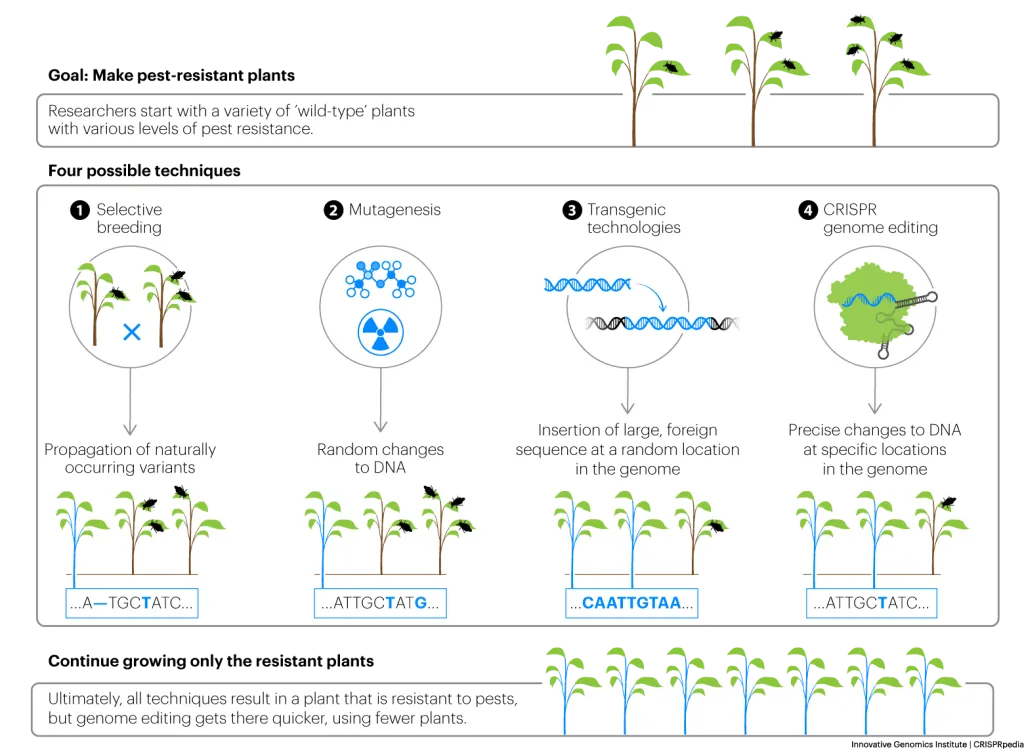In the ever-evolving landscape of agricultural biotechnology, a groundbreaking study published in the journal *Plants* is set to revolutionize the way we cultivate and consume peanuts. The research, led by Seong Ju Han from the Department of Molecular Genetic Engineering at Dong-A University in South Korea, delves into the transformative potential of CRISPR-mediated genome editing in enhancing peanut traits. This innovation promises to address long-standing challenges in peanut production, offering a beacon of hope for farmers and consumers alike.
Peanuts, a staple crop valued for their high oil content and nutritional benefits, have long grappled with issues such as disease outbreaks, nutrient deficiencies, and pest infestations. These challenges have historically impeded the achievement of high yields and sustainable cultivation. However, the advent of CRISPR technology has opened new avenues for precise genetic modifications, paving the way for significant advancements in peanut breeding.
CRISPR, a cutting-edge genome editing tool, enables researchers to make targeted changes to DNA, facilitating gene knockouts, regulating gene expression, and introducing specific genetic alterations. This precision is particularly crucial for polyploid crops like peanuts, which have complex genomes. “The ability to make precise genetic modifications in peanuts is a game-changer,” says Han. “It allows us to address specific traits that are critical for improving yield, quality, and resistance to environmental stresses.”
The study highlights several successful applications of CRISPR in peanut improvement. For instance, researchers have successfully increased the oleic acid content in peanuts, a trait that enhances the nutritional profile and shelf life of the crop. Additionally, efforts to reduce allergenicity have shown promising results, potentially making peanuts safer for consumers with allergies. “These achievements demonstrate the effectiveness and potential of CRISPR technology in peanut breeding,” Han explains. “They provide a solid foundation for further research and development in this area.”
The commercial implications of this research are substantial. By enhancing traits such as disease resistance, nutrient content, and yield, CRISPR-mediated genome editing can significantly boost the agricultural sector. Farmers can expect higher productivity and more resilient crops, while consumers can look forward to healthier and safer food options. “The potential for CRISPR to transform the peanut industry is immense,” says Han. “It offers a sustainable solution to many of the challenges we face in peanut cultivation.”
Looking ahead, the study emphasizes the crucial role of genome editing in advancing peanut breeding and agricultural productivity. As researchers continue to explore the capabilities of CRISPR, the future of peanut cultivation looks brighter than ever. “This technology is not just about improving peanuts; it’s about shaping the future of agriculture,” Han concludes. “The possibilities are endless, and we are just scratching the surface of what can be achieved.”
Published in *Plants* and led by Seong Ju Han from the Department of Molecular Genetic Engineering at Dong-A University, this research marks a significant milestone in the field of agricultural biotechnology. As we stand on the brink of a new era in crop improvement, the potential for CRISPR-mediated genome editing to revolutionize the peanut industry is both exciting and promising. The journey towards sustainable and productive agriculture has never looked more hopeful.

